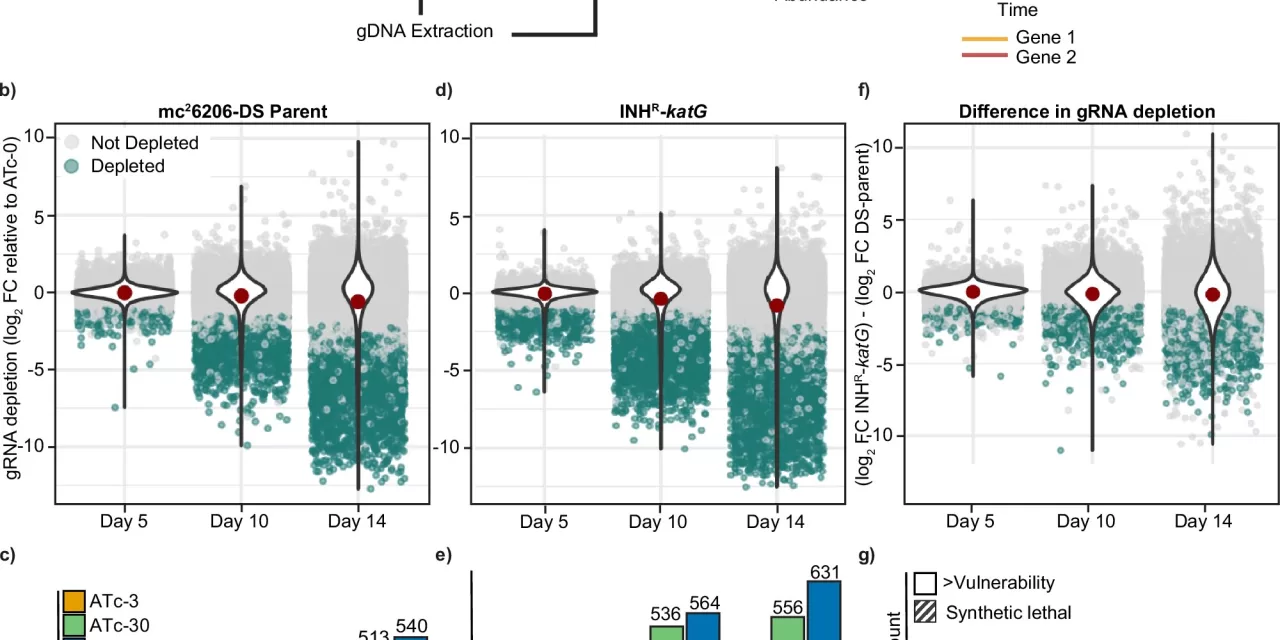A groundbreaking discovery could lead to new treatments for one of the world’s deadliest infectious diseases.
Researchers from the University of Otago have identified a critical vulnerability in drug-resistant Mycobacterium tuberculosis, offering fresh hope in the battle against one of the world’s leading infectious diseases. Their study, published in Nature Communications, outlines the use of a genetic platform to pinpoint biological pathways in drug-resistant strains of tuberculosis (TB), revealing weaknesses that could be targeted for more effective treatments.
The study, led by Dr. Matthew McNeil from the Department of Microbiology and Immunology at Otago, focused on developing technology that could identify the “Achilles heel” of the bacteria. This discovery could lead to drugs capable of rapidly eliminating even drug-resistant strains of TB.
“By understanding the biological pathways that are most vulnerable to inhibition, we can identify existing and novel drugs that can target these weak points,” Dr. McNeil explained. “This is a significant step forward, not only for treating Mycobacterium tuberculosis—which remains the leading global cause of infectious disease morbidity, surpassing COVID-19 in 2024—but for combating drug-resistant pathogens more broadly.”
Tuberculosis remains a major public health issue, particularly in the form of drug-resistant strains. According to Dr. McNeil, treatment options for these infections are often limited, and without new strategies, drug-resistant TB poses a serious threat to global health.
“There is a very real risk that drug-resistant infections could undermine the effectiveness of many medical procedures, from cancer treatments to organ transplants,” he said. “This is why innovations like ours are so crucial. We need new, targeted treatments that not only kill pathogens faster but also prevent the emergence of resistance in the first place.”
The research team’s work utilizes whole-genome CRISPR interference (CRISPRi) screening to identify key vulnerabilities in drug-resistant strains of M. tuberculosis. The discovery could serve as a model for tackling other drug-resistant diseases, offering hope for developing treatments that address the urgent needs of the global medical community.
Dr. McNeil emphasized that while drug-resistant TB is a serious challenge, innovative thinking and cutting-edge technologies could provide the necessary tools to fight back. “Drug-resistant infections are a frightening reality, but with new strategies for drug design and targeted treatment, there are actionable solutions on the horizon.”
The findings open new avenues for research and treatment development, providing hope for the future of global public health in the face of rising antimicrobial resistance.
For more details, see the full study: Wang et al, Whole genome CRISPRi screening identifies druggable vulnerabilities in an isoniazid resistant strain of Mycobacterium tuberculosis, Nature Communications (2024). DOI: 10.1038/s41467-024-54072-w.











